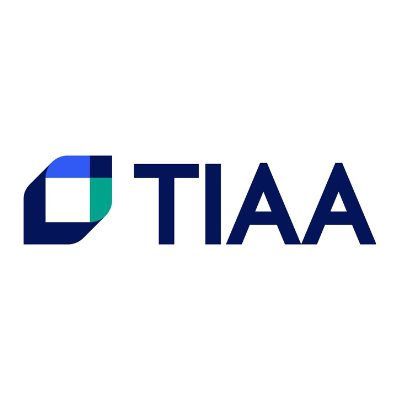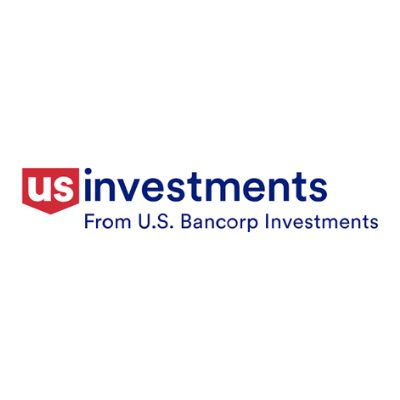Over the past several years there have been some big changes in the investing world that have benefited investors directly. One is that increased competition has forced investment companies to significantly reduce the fees they charge to hold, manage, and invest your money.
This is great news for any investor—you can get world-class advice and an easy place to invest with low fees. Over time saving even 1% or less per year on your portfolio in fees can add up to hundreds of thousands, if not millions, more dollars in your investment accounts.
With my own portfolio, I anticipate having an additional $2 million in 20 years because I've kept minimized fees low with low-cost index funds like Vanguard's Total Stock Market Index Fund (VTSAX).
Other big shifts investment companies have had to make are improving their customer experience, mobile experience, and service offerings. That means it’s never been easier to invest and manage your money. There are also many different products you can choose from based on your goals, expectations, and how hands-on you want to be with your investments.
You can outsource the management of your portfolio and be completely hands-off, take a hybrid approach where you use technology to help manage your portfolio, or do everything yourself.
There are unlimited investing options, so we’ve taken the time to compile a list of what we view as the best investment companies based on their services, fees, reputation, and customer experience. We’ve also noted what we believe makes each of them unique.
While I personally have all of my own investments at Vanguard and I bank with J.P. Morgan Chase, I have also held investment accounts at Fidelity and Charles Schwab. In addition to investing directly and having experience with the top four companies on our list, I've also evaluated the others on the list closely and paid attention as their products have evolved over time since I'm always looking for the best place to invest my money.
Top 10 Investment Companies
After a careful analysis of all the investment firms out there, here are the top options I recommend you consider for your investment account:
- Vanguard
- Fidelity
- Charles Schwab
- J.P. Morgan Chase
- Morgan Stanley
- BlackRock
- TIAA
- Edward Jones
- Prudential
- U.S. Bancorp Investments Automated Investor
1. Vanguard 
Vanguard is one of the world’s largest investment companies, offering more than 80 ETFs and 160 mutual funds. The nice thing about Vanguard is that they have low fees because Vanguard is owned by its customers.
I've been a Vanguard customer since 2009 and it's where I hold all of my investments. The company is known for offering funds that provide competitive long-term growth, along with low costs. Vanguard clients pay $0 commission when trading ETFs and stocks online.
While Vanguard has had some challenges with managing customer service over the past several years as they’ve grown, I’ve always been happy with the service and the experience. My friends and other investors have also communicated to me that Vanguard have been getting better with customer service.
If you’re a serious investor and want to work with one of the most respected investment companies in the world, it’s worth checking out Vanguard’s product offerings. While they don’t offer full-service investment management, they do offer a variety of self-service investing options with a lot of support. I’ve personally tried Vanguard’s Personal Advisor Service and enjoyed working with them. The fees are modest and the support was valuable.
While I now manage all of my investments in my own through Vanguard, Vanguard ‘s Personal Advisor Services is worth checking out.
Learn More:
2. Fidelity 
Fidelity is a large financial services company offering mutual funds, ETFs, stocks, managed accounts, and retirement plan management. Additionally, you can purchase fractional shares for as little as $1.
The company is also known for offering affordable rates, making them a great service for investors who are looking to minimize costs.
Learn More:
3. Charles Schwab 
Schwab is considered to be one of the most robust financial providers for investors of all types, from beginners to seasoned pros. The company offers a powerful trading platform, a wealth of investor information, brokerage services, retirement plans like IRAs and Roth IRAs, and commission-free trading.
You can opt for self-directed trading, an automated Schwab Intelligent Portfolio, or professional wealth management.
Learn More:
4. J.P. Morgan Chase 
J.P. Morgan was founded in 1871 by J.P. Morgan and is the largest bank in the United States and one of the largest banks in the world. The biggest benefit you get working with J.P. Morgan is a global network that gives you access to many different levels of products and customizations no matter what your financial goals are.
J.P. Morgan offers commission-free trading on a robust platform with advanced insights and a variety of tools to help make the right decisions. The company also offers access to stocks, bonds, ETFs, and mutual funds to help create a diversified portfolio, along with retirement plans such as traditional IRAs and Roth IRAs.
I've been personally banking with Chase since 2009. It's where I hold both my personal and business accounts. What I love about working with Chase is that I can easily pop into any branch in the world and get help. Last year I was vacationing in Michigan and I was easily able to go into a Chase branch to send a large wire for a home I was closing on in New York City. It was a simple as walking in and giving them my ID. I love this convenience and the ability to work directly with an experience point of contact. As a business account holder I have a business account manager who connects me with anyone he thinks can help me at J.P. Morgan.
If you’re interested in working with the top bank in the world and all the access that provides it’s worth checking out J.P. Morgan’s investment options.
J.P. Morgan’s Most Popular Investment Services:
- Self-Directed Investing: With the self-directed account, active investors get unlimited commission-free trades on thousands of securities, with a wealth of research and investment tools. You could also get up to a $700 bonus when you fund your general investment account or IRA with a qualifying deposit.
- Personal Advisors Service: This service pairs you with a team of fiduciary advisors who build a custom financial plan, match you with expertly crafted portfolios to meet your investing goals, and offer ongoing advice and support.
Learn More:
INVESTMENT AND INSURANCE PRODUCTS ARE: NOT A DEPOSIT • NOT FDIC INSURED • NO BANK GUARANTEE • MAY LOSE VALUE5. Morgan Stanley 
Another top brokerage for investors is Morgan Stanley, which extended its reach in 2020 by acquiring E*Trade.
The company has always been known for offering a full range of investing services and a wealth of investor resources. With its acquisition of E*Trade, it now boasts low fees as well.
Whether you’re looking to trade stocks, bonds, or funds, it’s a solid choice. You can benefit from wealth management services, intuitive trading platforms, investment banking, and research with Morgan Stanley.
Learn More:
6. BlackRock 
BlackRock is an American investment company based out of New York City, and one of the top investment firms in the world.
The company offers a range of managed funds and ETFs and is known for helping investors plan for retirement and college savings, with robust educational resources for investors online.
Learn More:
7. TIAA 
If you’re working in medicine, education, culture, or research, you should look into the Teachers, Insurance and Annuity Association (TIAA). This organization provides retirement, investment, and insurance services for people in those industries, along with special advisory services.
You can choose between DIY investing and managed accounts built from a diverse range of mutual funds, with several account options including IRAs and brokerage accounts.
Learn More:
8. Edward Jones 
Edward Jones offers a variety of financial services, including wealth management, retirement, and college savings, with stocks, bonds, and mutual funds. Just note that fees are often higher than other investment companies.
However, the company is known for providing expert investment advice. Investors can benefit from having a trusted investment advisor who gets to know them and understands their unique financial goals.
Learn More:
9. Prudential 
Prudential is a Fortune 500 company that provides insurance, retirement, and investment services. Prudential’s Personal Advisory Group offers a 30-minute complimentary call with prospective clients.
From there, their financial advisors can help with a customized financial strategy based on your goals and preferences. It’s a solid choice if you’re looking for tailored financial advice.*
Learn More:
10. U.S. Bancorp Investments Automated Investor 
U.S. Bank is one of the largest banks in the country, offering an array of banking and investing services. U.S. Bancorp Investments Automated Investor uses automated rebalancing to keep your portfolio on track, with human assistance when you need it.
Once you choose a goal, Automated Investor will build a diversified portfolio of low-cost ETFs, monitor your investments, and make adjustments as needed. It has a $1,000 minimum investment and affordable annual fees.
Learn More:
What is an Investment Company?
An investment company is a financial firm that facilitates trades for customers.
This type of organization is fundamentally different from a traditional bank that offers savings programs. Investment companies act as wealth management providers, serving to help customers invest and increase their wealth in the stock market.
Ultimately, a brokerage firm can help you execute your investment strategies and achieve your financial planning goals.
Types of Investment Companies
Generally speaking, there are three types of investment companies to explore.
1. Open-End Companies
An open-ended management company manages open-ended investment funds. For example, you can use an open-ended management investment company to directly purchase mutual funds and exchange-traded funds (ETFs).
2. Unit Investment Trusts (UITs)
A UIT pulls money from investors in a one-time public offering and invests it in a portfolio made of securities like bonds and stocks. This type of fund issues redeemable units, meaning they buy back units from investors at their net asset value (NAV).
3. Closed-End Funds
In a closed-end fund, money is raised through initial public offerings in bonds, stocks, money market instruments, and other types of securities.
Closed-end funds do not offer shares for sale. Rather, they sell a fixed number of shares at once. Funds are traded on a market like the NASDAQ or the New York Stock Exchange (NYSE), and prices are determined by the market.
This type of fund is not redeemable, meaning the fund is not required to buy shares back from investors.
Top Investment Companies by Assets
Here are the top investment companies listed by total Assets Under Management as of Q4 2024:
- BlackRock: $10.6 trillion
- Charles Schwab: $9.92 trillion
- Vanguard: $7.9 trillion
- Fidelity: $5.8 trillion
- JP Morgan Chase: $3.9 trillion
- Edward Jones: $2.20 trillion
- Bank of America (Merrill Lynch): $1.90 trillion
- Morgan Stanley (E*TRADE): $1.33 trillion
Benefits of Working with Investment Companies
1. Leverage Competitive Rates
One of the nice parts about working with investment companies is that many organizations offer low competitive rates and management fees, giving you the opportunity to access managed funds while making your money work harder for you.
Look for investments that come with low expense ratios, where the majority of the money goes toward growing the fund—and not to marketing or management expenses.
The expense ratio is one of the most important things you can look for when considering an investment opportunity.
2. Diversify Your Holdings
One of the hardest things about the stock market is its natural volatility. In other words, companies and markets can fluctuate significantly on a daily basis. It’s not a secure method of investing that guarantees a return.
By purchasing a fund from an online broker, you spread your risk around over a broad range of investments. Purchasing shares in several different funds is a great way to diversify your portfolio and reduce overall risk.
3. Pool Your Money with Investors
Another great part about working with investment companies is that they allow you to pool your money with other investors. This can help you access premium investments at lower overall costs.
By pooling money from a large number of investors, you can access a variety of funds that would otherwise be too costly to purchase outright. It can be a remarkably cost-effective way to increase wealth as long as you don’t pay too much in administrative, transaction, and other annual fees.
Tips for Working with Investment Companies
Know Who You’re Doing Business With
In some cases, an organization may appear to be an investment company but can be excluded under federal securities laws.
According to the SEC, private investment funds with no more than 100 investors and private funds whose investors have a substantial amount of investment assets are not considered investment companies, even though they issue securities and engage in investing in securities. This may be due to their private nature, or the type of investors they’re working with.
Read All Available Information Before Purchasing Shares
Make sure to read as much as you can about an investment company before you purchase any shares from them. That way, you have a clear understanding of the organization, the fund’s history, and any potential fees or other disclaimers.
Oftentimes, investors purchase funds with low expenses only to find that they have to pay a portion back when they decide to liquidate the fund. This can eat into your bottom line, and in some cases, it can negate the value of purchasing a low-cost fund. As such, it pays to read as much as you can from a variety of sources before purchasing a fund.
Remember—the last thing you want to do is start making investments on a whim. Take responsibility for your investments, and know what you’re purchasing ahead of time, or you could get swindled into purchasing a stock that isn’t as great as it appears.
What’s more, as a best practice, you should avoid taking financial advice from people who have a vested interest in the fund or firm you’re considering.
Types of Investments through Investment Companies
Investment companies tend to vary in the funds that they offer. Here’s a breakdown of some of the types of investments you can find through investment companies.
Stock Funds
A stock fund or equity fund is a type of fund that invests primarily in stocks or publicly traded shares of companies. The more of a company’s stock you have in your brokerage account, the more ownership you have.
However, stocks can be very expensive. By leveraging a stock fund, you can access a variety of stocks without having to buy them all on their own. This type of investment is beneficial when the stock market is doing well.
Bond Funds
As the name suggests, bond funds deal primarily in bonds, which are debt securities. There are many types of bonds, including government, corporate, floating-rate, fixed-rate, perpetual, and war bonds.
When you buy a bond, you essentially give that organization a loan with a promise to be paid back with interest by a certain date, known as the maturity date. Bonds can be as short as a month or as long as 30 years. They’re a good asset to consider for your retirement accounts.
Index Funds
An index fund is a type of investment that tracks a particular market segment. For example, you may choose to purchase a fund that tracks the S&P 500 exchange.
Index funds are generally passively managed, meaning they aren’t manipulated by fund managers. As such, index funds are generally lower risk and have lower fees than other types of actively managed investments, like mutual funds.
Index funds offer a lot of great benefits. But one downside is they tend to have higher minimum investments.
Mutual Funds
A mutual fund is a type of investment that’s made of money taken from many different investors and used to purchase various securities. Mutual funds are actively managed and, as such, generally have higher fees. The goal of a mutual fund is to beat the market.
Exchange-Traded Funds (ETFs)
ETFs are like index funds in that they are based on a collection of securities. However, they differ in the way they are bought and sold. ETFs are bought and sold throughout the day, while index funds are traded based on the market price at the end of the trading day. ETFs offer greater liquidity and they are usually more affordable than index funds.
Frequently Asked Questions
What is a diversified portfolio?
A portfolio is considered to be diverse if it has a balance of mutual funds, index funds, individual stocks, and ETFs. By creating a diversified portfolio, it’s easier to manage risk and protect yourself from market volatility. Portfolio diversity is generally recommended for secure long-term investing.
What is a fiduciary?
A fiduciary is a person that acts on their client’s behalf instead of in their own interest. A fiduciary is bound to act in good faith, even if it means taking a loss on investment to protect the customer’s interest. In short, it’s a trusted source for investing.
Can I purchase cryptocurrencies through an investment company?
Some investment companies are now offering access to cryptocurrencies. For example, Fidelity and E*TRADE make it possible to spend and manage currencies like Bitcoin.
This doesn’t remove any of the risks from buying cryptocurrency, and it’s important to remember that crypto is still highly volatile. However, it is easier to manage cryptocurrency when you can access it over the same platform as your other investments.
What are robo-advisors?
Robo-advisors are automated financial services that provide account management and recommendations for investors. For example, you can use a robo-advisor to determine which stocks or mutual funds you should invest in based on your needs.
Robo-advisors are generally for beginner investors, but anyone can use them to improve or enhance their portfolio. Just watch out for high fees when using robo-advisors.
What is an expense ratio?
An expense ratio refers to how a fund is allocated in terms of what goes toward investing and what is used to pay for management and marketing services. Expense ratios are important when looking at index and mutual funds. The lower the expense ratio, the more affordable the fund is.
The Bottom Line
Opening an investment account has never been easier with the abundance of full-service investing services that are now available. Financial customers can receive professional investment advice and investment management services to help build strong and diversified portfolios for short-term and long-term growth.
Just remember to find an investment company that offers reasonable rates so that the majority of your funds go toward growing your investment.
In addition, spend some time considering what type of financial guidance you need to make good decisions. If you want to invest on your own, make sure the platform offers a variety of data and investment options. Or look for a platform with a robust robo-advisor or customer service team.
Take your time and research your options to make the right decision.
Methodology
I’ve used various investing platforms, and our editorial team has thoroughly analyzed dozens of financial service companies.
Here are some of the factors we used to choose the best investment companies:
- Performance: We evaluated the performance history of investment companies to assess their success.
- Reputation: We assessed the reputation and credibility of each investment company on the list.
- Fees: We compared fee structures to determine value for clients and prioritized companies with lower fees.
- Customer service: We explored each company’s customer service quality and responsiveness, looking at customer reviews to gauge satisfaction.
- Technology: We analyzed the technology, research, and investing tools offered to account holders.
- Diversification Options: We explored diversification options offered by each company, favoring investment companies that allow you to invest in diverse funds or a variety of assets.
J.P. Morgan Wealth Management is a business of JPMorgan Chase & Co., which offers investment products and services through J.P. Morgan Securities LLC (“J.P. Morgan”), a registered broker dealer and investment adviser, member FINRA and SIPC. Millennial Money is a publisher of J.P. Morgan, (“Publisher”). The Publisher will receive compensation from J.P. Morgan if you provide contact details to speak with a J.P. Morgan representative. Compensation paid to the Publisher will be up to $500 per completed contact form. Compensation provides an incentive for the Publisher to endorse J.P. Morgan and therefore information, opinions, or referrals are subject to bias. J.P. Morgan and the Publisher are not under common ownership or otherwise related entities, and each are responsible for their own obligations. Investing involves market risk, including possible loss of principal, and there is no guarantee that investment objectives will be achieved.





No comments yet. Add your own